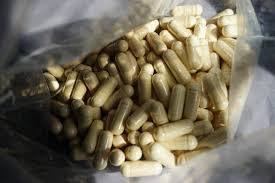Iron Supplements May Boost Brain Development in HIV-Positive Children

A recent study from the University of Minnesota Medical School has revealed that administering iron supplements to children living with human immunodeficiency virus (HIV) in sub-Saharan Africa may significantly enhance brain development. Published in *Lancet HIV*, the research challenges the common practice of withholding iron from children with HIV due to concerns over increased infection risk, instead suggesting that iron is beneficial for these children.
The study underscores the importance of optimizing brain development in HIV-positive children, especially in light of the successes of antiretroviral therapy (ART), which has extended the lives of many affected children. "With the success and widespread availability of ART, children with HIV in sub-Saharan Africa are living longer, and optimizing their brain development is a new public health imperative," said Dr. Sarah Cusick, an associate professor at the University of Minnesota Medical School and a member of the Masonic Institute for the Developing Brain.
Conducted between May 2018 and November 2019, the study enrolled 200 children with HIV and anemia who had been receiving ART for at least six months. Participants were randomly assigned to receive either iron supplements or a placebo for a period of three months. Those who received iron supplements exhibited higher hemoglobin concentrations and improved iron nutrition markers compared to those who received the placebo, with no evidence of increased infection risk.
Dr. Cusick emphasized the need for further research to assess the long-term effects of iron supplementation on brain development and potential infection risks in children with HIV. The research received funding from Minnesota Masonic Charities, the Department of Pediatrics at the University of Minnesota Medical School, the Hennepin Healthcare Research Institute, and the National Institutes of Health.
This study lays the groundwork for future investigations into the role of iron in neurodevelopmental outcomes for children with HIV, potentially reshaping public health strategies in managing the health of these vulnerable populations.
Story Source:
Materials provided by University of Minnesota Medical School. The original text of this story is licensed under a Creative Commons License. Note: Content may be edited for style and length.
Journal Reference:
- Anne E P Frosch, Victor Musiime, Christopher Staley, Andrea L Conroy, Diana Rutebarika, Gilbert Ategeka, Sarah E Cusick. Safety and efficacy of iron supplementation with 3 months of daily ferrous sulphate in children living with HIV and mild-to-moderate anaemia in Uganda: a double-blind, randomised, placebo-controlled trial. The Lancet HIV, 2024; 11 (11): e727 DOI: 10.1016/S2352-3018(24)00238-8

0 Comments